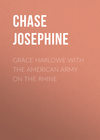Loe raamatut: «Marjorie Dean, College Senior»
CHAPTER I – A QUESTION FOR THE FUTURE
“Tomorrow evening at this time I’ll be back in my old room at Hamilton. Tonight, the Country of College seems very far away. Tomorrow, it will be Sanford that seems so.”
Marjorie Dean smiled frankly up into Hal Macy’s rather sober face. The strains of a slow waltz were throbbing to an harmonic end. Hal and his sister Jerry were giving a farewell hop in honor of the five Lookouts who were to return to Hamilton College the next day. Hal was thinking, as he looked down at Marjorie’s lovely, upraised face that no one, not even her father and mother, would miss her as he should.
“And who are you going to miss most?” he asked boldly, his eyes twinkling, nevertheless. “If you say myself, I shall be so flustered. You never say nice things to me, you know.”
“I’m not going to begin now,” Marjorie returned mischievously. “I shall miss General and Captain most, of course.”
“And me next most. I’ll say it for you, since you have no regard for my tender feelings. I think I ought to be ranked next to General and Captain,” Hal persisted audaciously.
“You do come next to them Hal – you and Connie and Laurie. The old guard are next dearest,” Marjorie hastily assured. “Oh, dear, the waltz is ending! I wish it would begin all over again. I like waltzing much better than fox trotting or one-stepping. And I love that particular waltz. It is called ‘In Sunny Gardens,’ and there is a certain suggestion of the title in the music, I think.”
Marjorie had sought hasty refuge in commenting on the waltz music just ended. Hal might appear to be joking. Marjorie knew he was not. During the summer vacation she had been in his company a great deal. The Deans had spent the summer at Severn Beach, a seaside resort patronized yearly by the Macys. Jerry and Marjorie had been constantly together, with Hal a delightfully persistent third party, whenever the two girls allowed him the privilege.
Hal Macy had been Marjorie’s devoted cavalier since the beginning of her high school days. Three years older than herself, he was already sure of his love for her. Marjorie, however, regarded him through the eyes of friendship only. She was still too greatly absorbed in college to make room in her life for romance. To her it was a vague something too remote from her mind to be considered. She did not wish Hal to be other than her friend of the old days. The bare thought of changing that pleasant friendly footing for a fonder relationship was repugnant to her.
“I’ll ask the musicians to play that waltz again, if you like, Marjorie. Say the word.”
Any momentary disappointment Hal might have felt did not betray itself in his tones. It was not the first time Marjorie had refused to take him seriously. He understood her too well to feel more than a momentary twinge over her indifference toward sentiment.
“Oh, never mind, Hal. I only said that because I liked the music so much. Thank you, just the same.”
“Have some lemonade, then. I am determined to please you, if I can.” Hal took gentle hold on Marjorie’s arm and began steering her toward the lemonade bowl which stood at one end of the long room.
“You always please me, Hal,” was the instant response. “You are the best boy ever was, and I never fail to have a perfectly scrumptious time at yours and Jerry’s parties. Now you can’t say again that I never said anything nice to you.”
“That’s not bad for a beginning.” Hal put on a critical expression. “Say something else nice to me.” His eyes regarded her very steadily now.
“Let me see.” Marjorie knitted her brows. “Well, I wish we had a ball room like this. We always have to dance in our living room, you know.”
“It’s a good old room. We have had some fine times here.” Hal found it harder this time to be casual, but he succeeded. It was plain to be seen Marjorie didn’t care a button about him, except as a friend. He resolved to keep the conversation strictly impersonal thereafter.
Marjorie was hard-hearted enough to feel glad of the change in Hal’s tone. His almost humbly-expressed desire to please her had touched her. It had brought forth from her the sincere little speech regarding her liking for him. The deepening light in his eyes, however, had warned her to rush from the subject to one more comfortably impersonal.
“I’m going to be lonesome this winter, Marjorie,” Hal continued. “I am about the only fellow in the crowd I’ve always run with to be left in Sanford. Danny’s going to New York to study law. Did I tell you the Crane is going to Buffalo to take charge of a branch of his governor’s business? Harry Lenox is going on the road for their business. And Laurie!” Hal made a gesture of resignation. “He’ll not be far away. Only the Atlantic Ocean between us! That’s all! I was in hopes he wouldn’t go back to Europe this winter. Circumstances, however – ” Hal stopped suddenly.
The significance of his tone caused Marjorie to interrogate quickly: “Circumstances? What do you mean, Hal?”
“It is plain you haven’t heard something you are due to hear. I can’t explain. I can only say this – Don’t be surprised at anything you may hear.” Hal made this mysterious assertion with the suspicion of a tantalizing smile.
Before Marjorie could inquire further as to his meaning, Danny Seabrooke joined them with: “The next dance will be a fox trot. Bid Macy a pleasant but sudden farewell, Marjorie, and prepare to dance it with me. I am a much better dancer than he. You will have something agreeable to look forward to.” He simpered at Marjorie, then closed one eye and squinted reflectively at Hal.
“Hope you’ll be in condition to dance that fox trot.” The silky intonation was not without menace.
“I trust that I shall. It all depends. If I can persuade Marjorie to leave this danger-laden spot at once, all will be well.”
“Don’t be too confident. There’s many a slip – ”
“I know it,” Danny cut in wisely. “I have fallen down three times on this floor tonight. I know all about that slip business.”
This confession merely provoked unsympathetic laughter on the part of his hearers.
The lively music of the fox trot beginning, Danny made an elaborate salaam to Marjorie.
“Goodbye for the present, Hal. I’m coming back to quiz you about that mysterious remark you just made,” she called over her shoulder as she started to dance away.
“You may expect me, too,” assured Danny. “Farewell!” He beamed foolishly at Hal and waved his hand.
“Farewell. You needn’t mind coming back, Dan-yell,” Hal flung ironically after him.
Readers of the “Marjorie Dean High School Series,” comprising the four volumes, “Marjorie Dean, High School Freshman,” “Marjorie Dean, High School Sophomore,” “Marjorie Dean, High School Junior,” and “Marjorie Dean, High School Senior,” are already in close touch with Marjorie and her friends.
Those who have been pleased to follow her through four years of high school life have undoubtedly been interested in her further doings as a student at Hamilton College. The account of her three years of hard study and progress, both social and mental, has been faithfully set down in “Marjorie Dean, College Freshman,” “Marjorie Dean, College Sophomore,” and “Marjorie Dean, College Junior.”
During the spirited fox trot Marjorie wondered busily as to the meaning of Hal’s remark. Her musings were forcedly disjointed. Danny now and again interpolated into his dancing an additional funny step which kept her attention on him.
The dance over, she promptly sought Hal. Now he was disposed to be thoroughly tantalizing. He laughed at her and accused her of undue curiosity.
“All right! Keep your old secret, Mister Stingy!” she at last exclaimed in laughing vexation. “I won’t dance with you again this evening, just to pay you for being so aggravating.”
“It isn’t my secret,” Hal began by way of conciliation. “The reason I mentioned it to you was because I was told you were to share it. Go and find Connie. She will tell you. I’ve told you too much already. I’m a fine repository for secrets.” Hal put sarcastic emphasis on the “fine.”
“I’ll forgive you when I find out what it is. There goes Connie now. I’m going to ask her.” Marjorie hurried off to intercept Constance, who was crossing the floor.
“Oh, Lieutenant!” Constance exclaimed, her fair face radiant. “I was just looking for you. I’ve something to report.”
“Go ahead. I’ve something to report, too,” Marjorie returned gayly. “Let us go downstairs to the window seat. We can have a wee little talk there.”
Arm in arm the two girls steered their course to the door of the ball room. At the foot of the rather steep stairway was a double window with a deep cushioned seat. There they settled themselves for an exchange of confidences. The full light of the white, sailing moon flooded the window seat, lending to the two young faces an enchantment of beauty.
Constance was wearing a pale blue chiffon frock, embellished here and there with small clusters of pinkish-white rosebuds. It was a facsimile of a blue gown long since laid away as a treasure of a by-gone day. The worn-out gown of blue chiffon had been Marjorie’s first gracious gift to Constance.
“You look just exactly as you did the night of the Hallowe’en party when you wore the other blue dress, Connie,” Marjorie said. “Will you ever forget that night?”
“No. I couldn’t. I still count it as the most eventful night of my life. It was my first dance, my first party dress, my first meeting with Laurie.” Constance became suddenly silent. Her hand reached out and found one of Marjorie’s.
“What is it, Connie?” Marjorie understood that Constance had something special on her mind which she was about to impart.
“I – I – Oh, Marjorie! I am not going to wait to be married to Laurie next June when he comes back from Europe. I am going to be married to him on Thanksgiving Day and go to Europe with him. We’re going to study together there.”
“Why, Connie Stevens! You take my breath!” Marjorie, who had been sitting very straight relaxed with a little, “Ah-h!”
“I knew you’d be flabbergasted.” Constance’s reply was tenderly apologetic. “I just had to tell you, though. We would be married as early as October, but, if we were, then you girls couldn’t come to our wedding on account of college restrictions. It will be a very quiet wedding. When we come home next June we will give a reception and invite all our friends. I am so happy, Marjorie. I couldn’t bear to be separated from Laurie for another year.” Constance hid her glowing face against Marjorie’s shoulder.
Marjorie listened to Constance, not yet over her first amazement at the news. Hal’s words, “Don’t be surprised at anything you may hear,” returned with force.
“It’s a beautiful plan, Connie,” she approved, when she found her voice again. Both arms went out to encircle her friend.
“I knew you would agree with us.” Constance gave a little sigh of satisfaction. “Aunt Susan was not pleased, at first. She wished to announce our betrothal formally at a reception for me this winter. She has been so dear to us. She was broad-minded enough to allow for such stray musicians as Laurie and me. Neither of us care about pomp and ceremony, you know.”
Constance raised her head. In her blue dress, with the moonlight playing upon her soft, childish features and golden hair, Marjorie thought she looked even younger than she had appeared at the eventful Hallowe’en party. Then, poverty and unhappiness had marred her beauty. Now, it had grown with every good gift that had been showered upon her.
“Marjorie,” she continued very solemnly: “I have never said a word to you before, but – ” with a slight pause, “I hope you will marry Hal some day. I am sure he loves you as dearly as Laurie loves me.” Constance spoke with the sincerity of the truly happy. She had found love. “You have always been friendly with Hal, but I understand you don’t love him now. I have watched you both, and I know he cares a great deal more for you than you for him. I don’t mean I wish you would fall in love with Hal tomorrow or next week or even next year, but, someday, I hope you will.”
“I don’t wish to fall in love with Hal or anybody else.” Marjorie shook her head with a decision that loosened a curl from the thick, wavy masses of hair drawn over her ears. She frowned down the remote possibility of such a catastrophe. “It has always been different with you and Laurie than with Hal and me. You two were really lovers as far back as your sophomore year at Sanford High. Hal and I have been just good friends, and so far as I am concerned, we are going to stay just good friends.”
CHAPTER II – THE RETURN OF THE “TRAVELERS”
“And is it yourselves, and no other? Where was I, may I ask, that I was not at the station to meet you?”
Leila Harper stood at the top of the front steps of Wayland Hall just long enough to thus interrogate the party of four girls who were advancing toward her. With a jubilant Irish whoop she made a sudden, forceful descent of the steps and landed among them with open arms.
“And I am that glad to see you!” she exclaimed. “Here I have been, melancholy as a roofless banshee, for two whole days. Vera, may the moon defend her and the sun lend her grace, was to be here today. Still no sign of our respected and regretted Midget!”
“Maybe we aren’t glad to see you, Leila Greatheart!” Marjorie was embracing Leila with a fervor that bespoke her affection for the genial Irish girl. “I would have wired you we were coming, but I hadn’t heard from you for three weeks, neglectful person, so I didn’t know where you were.”
“Now has it really been three weeks?” Leila inquired ingeniously, then laughed. “I’m guilty, Beauty. Forgive your Celtic friend. I am always meaning to write letters. It’s not lack of intention, but lack of execution that troubles me. But where is Ronny?” Making the round of greeting as she talked, Leila had now missed Veronica Lynne.
“Ronny hasn’t come from the West yet.” Muriel replied to the question. “This is the first year she hasn’t traveled to Hamilton with us. My, how I have missed her! We used to have such lovely squabbles on the train, all the way to college. It made things so pleasant and lively.” Muriel’s brown eyes danced as she forwarded this naive admission.
“Ronny and her father went on one of their long pony-riding trips,” Marjorie further enlightened Leila. “She may be on the way East now. I have not heard from her for over a month. Miss Archer, her God-mother, has only received one letter from her since the first of July. When she is on one of those trips she doesn’t write letters for she has no chance to mail them.”
“Who’s back, Leila?” eagerly inquired Jerry, as the party leisurely ascended the steps, Leila in the middle of the group.
“Hardly anyone, yet. It is early, you know. Mary Cornell and Eva Ingram are here; Kathie, too.”
“Hurrah!” Lucy Warner’s face lighted at this news. “How long since Kathie came, Leila?”
“Day before yesterday. She is staying at Lillian’s. I saw her when she got off the train. So did Lillian. Result – I haven’t seen her since.”
“I must call her on the telephone this very afternoon,” planned Lucy.
“I don’t know what I shall do without Hortense,” wailed Muriel. “I’ll be simply lost without her. I am glad I arranged for a single. I don't want a room-mate, so long as I can’t have good old Moretense.”
“Yes; and recall what a fuss you made when Miss Remson asked you to let good old Moretense have half of your room,” reminded Jerry.
“I was a grass-green, arrogant freshman, then,” Muriel loftily excused. “I had not yet attained to heights of wisdom and discernment which – er – ahem – became mine later.”
“When did this miracle you speak of take place?” Jerry affected deep interest. “First I’d heard of it. I never even suspected it.”
“I never answer foolish questions,” retaliated Muriel. “There are persons who make a practice of asking them. Such persons should not be encouraged.”
“Pay no attention to those two, Leila,” Marjorie advised. “Talk to Lucy and me. Tell me, are there any new arrivals at the Hall?”
“Two freshies. I haven’t asked Miss Remson their names. They have Leslie Cairns’ room. They are a noisy pair. I hear them giggling and talking in the halls at every turn.”
“That doesn’t sound as though you admired them, Leila.” Jerry had not lost what Leila had been saying.
“I do not. As a crusty old post graduate, I am hard to please.” Leila’s genial smile belied her words. “I have been too long used to distinguished company.”
“That means us. Bow to the lady.” Muriel gave Jerry a significant nudge.
“Do your own bowing and don’t interrupt. I want to hear who’s come back and who hasn’t. Go ahead and tell us some more, Leila. Never mind my friend here. She is what I should term ‘voluable.’” Jerry turned her back on Muriel.
“Let me see. Martha Merrick is coming back. With her, Vera, Helen and I, there will be four P. G’s. Five Lookouts, make nine of the old girls here. Eva and Mary make eleven, and there are six or seven more. In all, perhaps eighteen students who were here last year. The Hall holds forty-four girls, but Muriel has a single and Kathie’s room will stay empty unless some one wins the scholarship she won. That is not likely to happen.”
“I hope Kathie will have half as nice a room at Randolph House as she had here,” Lucy said. “I’m going to miss her dreadfully.”
Engaged to teach English at the college, Kathie had applied for admission to Randolph House the previous June. It was a campus house given over to members of the faculty.
“You will have to be on your best behavior when you go to see Kathie,” warned Jerry. “The eyes of the faculty will be upon you.”
“Don’t worry about me.” Lucy fixed Jerry with a withering glance. “I know how to behave. I’m going into the house to see Miss Remson.” She reached for her suitcase and leather bag with an air of lofty disdain.
Girl-fashion, the group had reached the floor of the veranda only to gather about Leila and ask questions. Following Lucy’s example, they now repossessed themselves of their luggage and entered the house to pay their respects to Miss Remson.
She had already heard the babel of voices rising from the veranda. Recognizing Muriel’s peculiarly clear, high-pitched tones, she had delightedly hurried to the door. She met the arrivals on the threshold and gave them a hearty welcome.
“Go up to your rooms, girls, and leave your luggage,” she directed, after a cordial hand-shaking all around, “then come down to the dining room. It is only four o’clock. You need something to eat. I will have tea ready for you. If I remember rightly, you Sanford girls have always arrived on a later train.”
“Yes; the five-fifty,” Jerry informed. “The train schedule has been changed. Our train left Sanford at twenty minutes past seven this morning. It was the only one we could take that would bring us here before dark.”
“You’re a dear, Miss Remson,” lauded Muriel. “The very thought of tea is inspiring. I’ve been hungry for the last hour.”
“So have I,” echoed Jerry. “No reason for it, either. We had luncheon on the train.”
“Yes, but at what time?” reminded Muriel. “Precisely twelve. Four hours’ ride after that on a bumpety-bumpety train is sufficient cause for a quick return of appetite.”
“Quite true, my dear Miss Harding,” allowed Jerry, favoring Muriel with a patronizing smile.
“So glad you agree with me. It might worry me if you didn’t.” Muriel returned the smile with one equally patronizing.
“Such smirking and beaming, and so deceitful, at that,” teased Leila.
“I’m merely trying to take Ronny’s place with Muriel,” defended Jerry. “She keeps complaining that she has no one to squabble with.”
“When do you think Veronica will be here?” Miss Remson had been listening in amusement to Jerry and Muriel. She was genuinely happy to have the Lookouts back at Wayland Hall again. “I received one long, delightful letter from her in July.”
“We don’t know,” answered Marjorie. She went on to tell the manager what she had already told Leila regarding Ronny.
Such information as she had concerning her missing chum given, the quartette, accompanied by Leila, went on up the staircase and once more made port in their familiar quarters.
“Oh, wow!” ejaculated Jerry, as she dropped her luggage to the floor and sank thankfully upon her own particular chair. “I’m glad I’m here. I hate leaving home, but, now that I’ve once more struck this fond, familiar spot, I find it pretty fair, Bean; pretty fair.”
“I echo your sentiments, Macy. I do, indeed; all except the Bean,” Marjorie retorted, giggling, nevertheless, at the appellation.
It was the derisive name which Leslie Cairns, the leader of the mischief-making Sans, had been pleased to apply to her. It never failed to make Marjorie laugh. There was something so utterly ridiculous about it. Jerry occasionally found amusement also in addressing her as “Bean.”
“You are always so good to us, Miss Remson,” Marjorie gratefully voiced, when presently the hungry travelers had gathered at a table in the long, cool dining room. The day being warm, the manager had thoughtfully provided a tall pitcher of iced tea and a large plate of chicken, olive and lettuce sandwiches.
“Don’t think me stingy for not offering you more of a spread. I wish you to have some appetite for dinner. This little bite will be just a help along the way until dinner time.”
“No wonder everybody is crazy to live at Wayland Hall,” commented Muriel, in appreciation of the manager’s kindly efforts.
“I am so sorry Anna Towne and the girls off the campus wouldn’t allow us to carry out our plan for them.” Marjorie looked her regret. “We wanted them here, you know.”
The “plan” to which she now referred had been one mapped out by herself and Robina Page during her junior year at Hamilton. They had agreed to save a part of their spending money through the college year and also the summer vacation. Object of their self-denial, to make it possible for Anna Towne, and one other off-the-campus girl whom Robin should select, to enjoy the comfort of Wayland Hall as a residence. Their particular friends had been quick to imitate the example they had set. Altogether fourteen girls had joined in the generous movement.
Marjorie and Robin had been detailed to put the offer before the girls each youthful benefactor had elected to help. Two weeks before the close of college Robin had invited them to a spread in her room and there explained matters. No amount of urging, however, on hers and Marjorie’s part, could persuade them to take advantage of the offer. It was with reluctance that they even consented to go on accepting assistance from the students’ beneficiary recently formed.
None of the young philanthropists had been sanguine of an acceptance of their generosity. At least it had been made in good faith. According to Jerry it was too bad they “couldn’t see it,” but it hadn’t done any special harm to cut out a few extravagances. The money each had saved to such a worthy end was collected by Robin and added to the sum on deposit as the Hamilton College Beneficiary Fund in a Hamilton Bank.
“Oh, well, no one could blame the girls for feeling as they did about letting us help them. In their position, I suppose it would have been the same with us,” was Muriel Harding’s opinion. “It would have been fine to have them at the Hall. They are a dandy lot of girls.”
“I am sorry, too, that they will not be here,” Miss Remson said. She had been signally interested in the idea at the time it had been agitated. “I expect sixteen freshmen here and eight upper class students. Two of these last are from Craig Hall, two from Acasia House, and four from Alston Terrace. I had a number of applications from students at other campus houses but took the first eight who applied.”
“Alston Terrace?” Leila interrogated, lively interest animating her expressive features. “Would you mind telling us, Miss Remson, who is coming from Alston Terrace?”
Every pair of eyes now fastened upon the manager, looked inquiry. The same thought had flashed through each brain.
“I have not familiarized myself with the new names as yet. I will go for my register. It will be a good plan to go over these names with you girls. The students from other campus houses are no doubt acquaintances, perhaps friends, of yours. As seniors, you will wish to know the names of the freshmen who are to be here. I depend on you to help them to feel at home.”
Miss Remson rose from her chair and left the room. A brief silence followed her exit, during which five girls regarded one another speculatively.



















